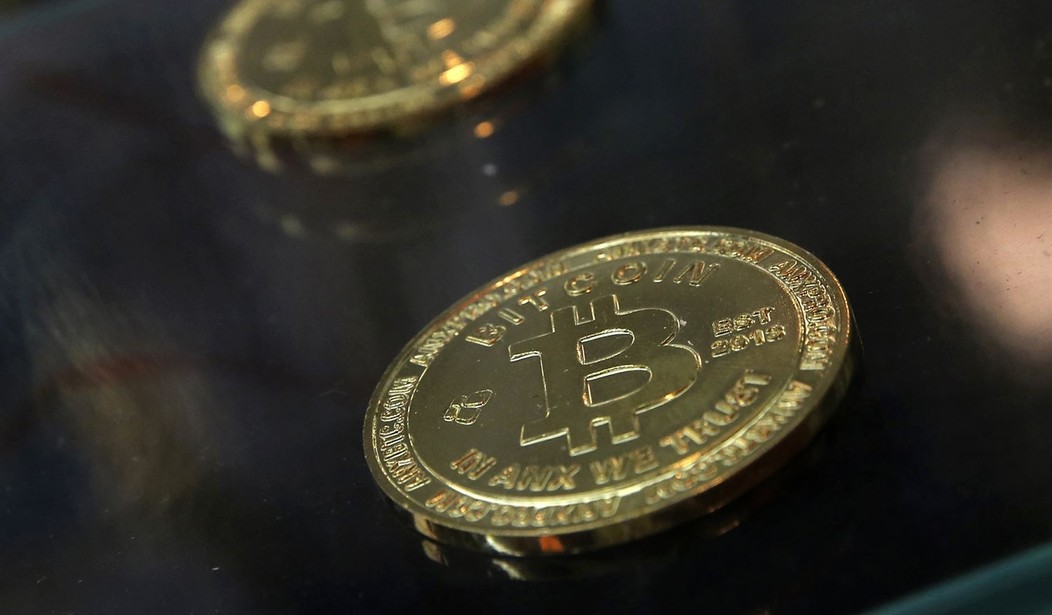Editor's note: This column was authored by Emilie Dye.
Last January, you could buy a bitcoin for less than $9,000 — that's roughly the downpayment on a 2018 Ford F-150. Today, it costs around $37,000 — that's almost enough to buy the truck outright.
Much of bitcoin’s recent popularity is a product of the times. In 2020, governments around the world spent tax dollars like teenagers throwing around their dads’ credit cards. It’s not surprising that many now wonder if maybe we shouldn’t trust the government to be the guardian of the money supply.
Bitcoin is an entirely digital currency which uses blockchain technology to make and verify transactions. Think of blockchain as essentially a ledger or record of all transactions made with each unit of the currency. Each bitcoin is a computer file with a history of all transactions back to the very first one made on the genesis block.
No different from the dollar, bitcoins are valuable because we believe they are valuable. We trust that we can exchange a bitcoin, or a dollar, for certain goods, services, or other currencies.
But unlike the US dollar, bitcoin’s value isn’t determined by governments, and the money supply cannot change. There will never be more than 21 million bitcoins. The founder and originator, Satoshi Nakamoto, remains anonymous. Giving true transparency, the software running the blockchain is open source (anyone can see the code and add to it) and all changes are made by a rough consensus of the developers. But ultimately users must consent to any change in the code.
Throughout the COVID-19 crisis, governments around the world have been reacting. They have cut interest rates and pumped money into the economy through both monetary and fiscal stimulus. While at the moment we are worried about businesses closing and people losing their jobs, inflation is a real threat in 2021.
Recommended
We are already seeing it in some markets. For example, look at cars again: This time last year I bought a 2002 Mazda MX-5 for $7,500. A quick perusal of used car sites shows that same car is now selling between $14,000 and $16,000. Granted, I’m from Australia and the Australian used car market is hardly a universal measurement, but still it’s concerning that my dollar is worth less of a Mazda than it was last year.
Once our lives finally get back to something that can be called “normal,” many of us will start spending. Those who kept their jobs during this crisis have likely seen their bank accounts grow with restaurants closed and travel restricted. When the flood gates open people are going to want to spend and enjoy life without lockdowns. The increased demand will inevitably lead to an increase in prices.
When the U.S. dollar becomes less reliable, people understandably want their savings in more tangible assets. In the past, when people flocked to safety they bought gold and other precious metals. But in this digital age, bitcoin is the new gold.
Still skeptical? Look at Venezuela: Venezuelans facing extreme hyperinflation picked up bitcoin as a currency. According to coindesk, “expats use bitcoin to send remittances back home, where locals convert it to bolivars to buy food and pay bills.” Venezuela now has a thriving peer to peer bitcoin network as a result of government instability and inflation.
The United States is not facing inflation anything like that which infected Venezuela. However, U.S. debt is now at $26.7 trillion — that’s $81,353 per American. That along with high levels of coronavirus spending should give Americans ample reason to worry about their savings and to diversify into other assets.
If the U.S. cannot pay back its debt the value of the dollar will drop. We can’t quantitatively ease ourselves into prosperity and any attempt to do so devalues our dollar.
Bitcoin is a currency immune to political whims. Anyone looking to protect their savings and to diversify their assets should consider jumping on the bitcoin bandwagon instead of relying solely on money managed by a central government.
Emilie Dye is the Executive Director of the H.R. Nicholls Society, the Policy Direct for the Australian Taxpayers’ Alliance, and contributor to Young Voices. Find her on Twitter @emilie_dye.

























Join the conversation as a VIP Member